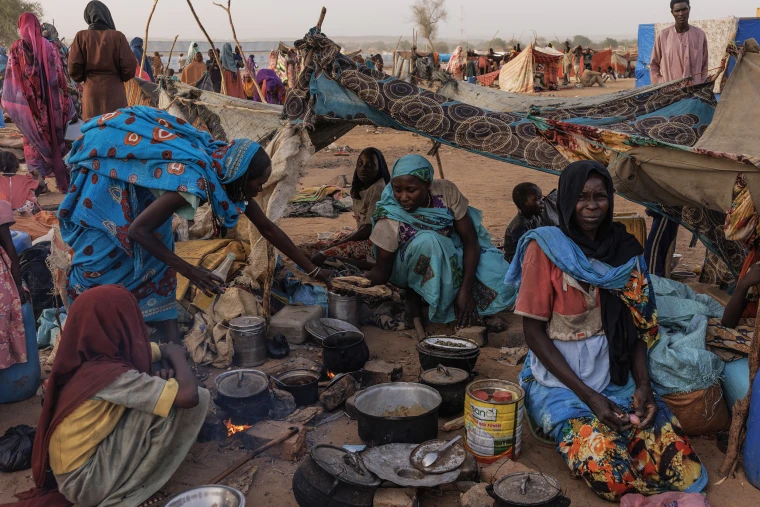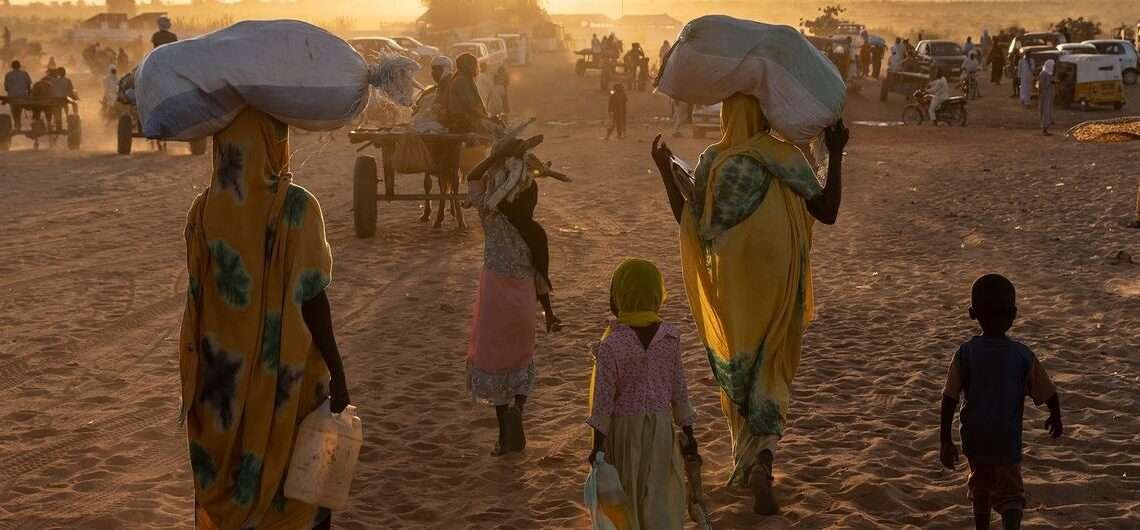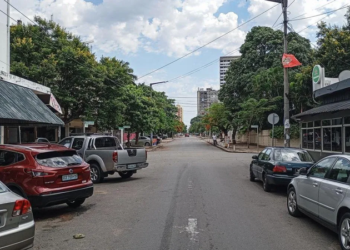Sudan is grappling with a devastating famine driven by ongoing war between its military and the paramilitary Rapid Support Forces (RSF).
According to the Integrated Food Security Phase Classification (IPC), the conflict has plunged the nation into chaos, creating the world’s largest displacement crisis and leaving millions on the brink of starvation.
In its latest report, the IPC revealed famine in five regions, including Sudan’s largest displacement camp, Zamzam, located in North Darfur. The camp, which shelters more than 400,000 people, experienced famine for the first time in August. Similar conditions were detected in other displacement camps, including Abu Shouk and al-Salam, and in the Western Nuba Mountains.
“This marks an unprecedented deepening and widening of the food and nutrition crisis,” the IPC stated. The organization attributed the situation to “devastating conflict, mass displacement, a collapsing economy, societal disruptions, and poor humanitarian access.”
The IPC highlighted how the ongoing hostilities have disrupted agricultural activities. Many farmers have abandoned their fields, and widespread looting has destroyed vital food stocks. As a result, displaced households, particularly those in settlements and public buildings, face limited access to harvests.
Five additional regions in North Darfur, including the provincial capital el-Fasher, are expected to experience famine within the next six months. Seventeen areas in the Nuba Mountains and northern and southern Darfur also remain at risk, the report said.
In Khartoum and the east-central Gezira province, famine-like conditions are believed to exist, though a lack of reliable data has prevented confirmation.

Government Denial and Aid Challenges
Ahead of the IPC’s findings, Sudan’s government announced its withdrawal from the global hunger-monitoring system. In a letter dated December 23, Agriculture Minister Abu Baker al-Beshri accused the IPC of issuing “unreliable reports that undermine Sudan’s sovereignty and dignity,” according to a senior UN official.
The war, which began in April 2023, has killed more than 24,000 people and displaced over 14 million — roughly 30% of Sudan’s population. Of these, 3.2 million have fled to neighboring countries like Chad, Egypt, and South Sudan.
Aid organizations face immense challenges in reaching those most in need, particularly in conflict-heavy regions like North Darfur. Food in markets has become scarce, and skyrocketing prices have made it inaccessible for many.
Dervla Cleary, senior emergency and rehabilitation officer at the United Nations Food and Agriculture Organization (FAO), stated that 638,000 Sudanese are currently experiencing famine.
“The situation in Sudan is just awful. It is unacceptable in a world like today. We need the violence to stop so people can access food, water, health, nutrition, and agriculture.”
Dervla Cleary
The IPC report estimates that 24.6 million Sudanese, half the country’s population, are experiencing high levels of acute food insecurity. The organization also noted that Sudan has become the third country in 15 years to declare famine, following South Sudan and Somalia.
The 2011 famine in Somalia claimed a quarter of a million lives, half of them children under five. Without urgent intervention, Sudan risks repeating this catastrophic history.
The conflict between Sudan’s military and the RSF has spread from the capital, Khartoum, to other regions, including western Darfur. The violence has been marked by atrocities such as ethnically motivated killings and sexual violence, prompting investigations by the International Criminal Court for potential war crimes and crimes against humanity.
READ ALSO: Rising Air Levels Threaten Air Quality During Harmattan- EPA Warned





















